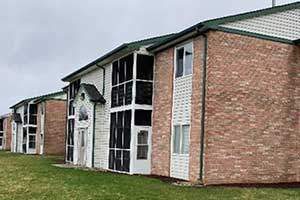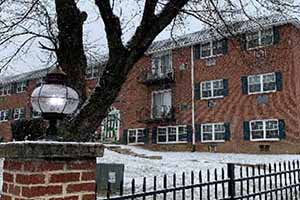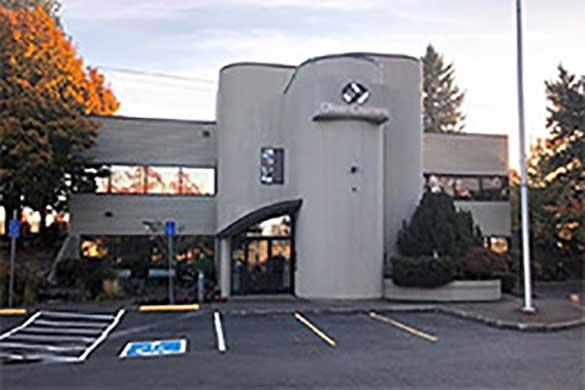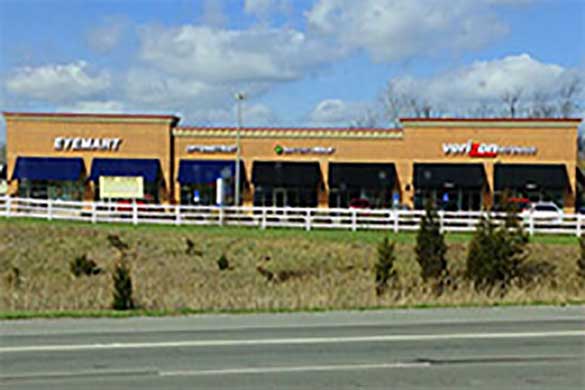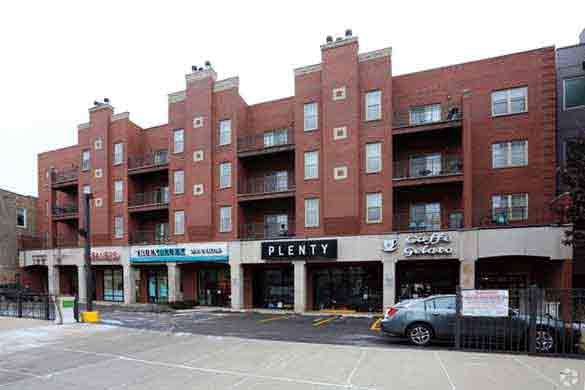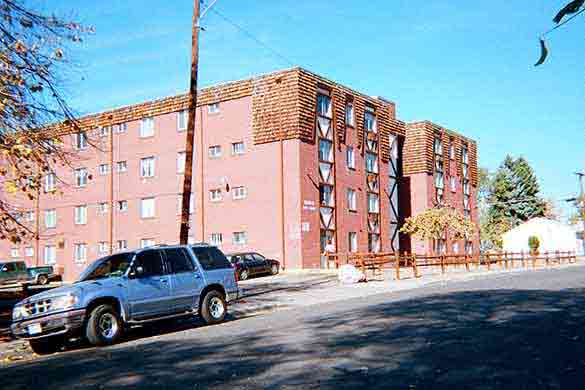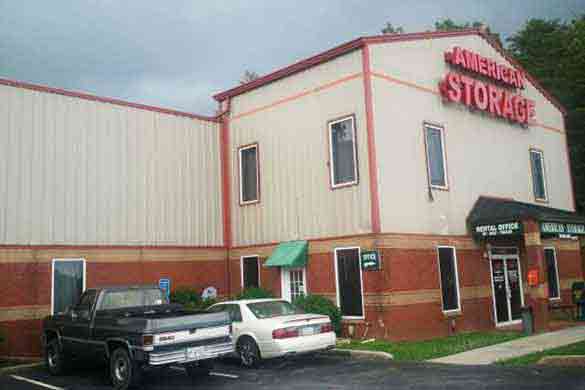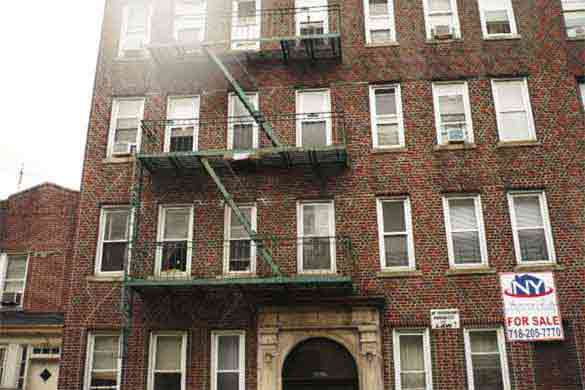Kansas Commercial Mortgage Rates
At Select Commercial, we've built a solid reputation in the Kansas commercial mortgage sector, offering tailored solutions for a variety of KS commercial properties across the state, with loans starting at $1,500,000. As experts in commercial real estate financing, we also understand the increasing demand for Kansas apartment loans. Whether you're interested in multifamily units or exploring other commercial property options, our commercial mortgage rates page gives a detailed look at the best rates available across the 48 states. Discover what’s going on with Kansas commercial mortgage rates in early 2025?.
Kansas Commercial Mortgage Rates - updated 01/28/26
| Loans Over $1,500,000 | Get Free Quote | ||
|---|---|---|---|
| Loan Product | Rate* | LTV | |
| Multifamily | 5.18% | Up to 80% | |
| Commercial Real Estate Loan | 6.22% | Up to 75% | |
| Single Tenant Lease | 5.82% | Up to 75% | |
| Business Real Estate Loan | 6.02% | Up to 90% | |
Kansas Commercial Mortgage Benefits
KS commercial mortgage rates start as low as 5.18% (as of January 28th, 2026)
• A commercial mortgage broker with over 30 years of lending experience
• No upfront application or processing fees
• Simplified application process
• Up to 80% LTV on multi family , 75% on commercial (90% with SBA)
• Terms and amortizations up to 30 years
• Loans for purchase and refinance, including cash-out
• 24 hour written pre-approvals with no cost and no obligation
Our Reviews
Some commercial mortgage lenders lock rates at application, some lenders lock rates at commitment, while others lock rates prior to closing. We are currently in the midst of an increasing rate environment. Rates quoted at application may increase dramatically during the loan application progress, if not locked. It is very important to understand your lender’s procedure upfront to avoid potential confusion.
In order for a commercial mortgage lender to issue a firm loan approval, they will want to understand the financial condition of the borrower, as well as the fundamentals of the property. The borrower will be expected to supply his personal financial statement showing total net worth and liquidity. He will also need to provide a schedule of real estate owned demonstrating experience managing similar properties. Lastly, the borrower’s credit scores will needed. For the subject property, lenders will look closely at the current rent roll, operating statements showing income and expenses, copies of all leases, and other pertinent property information.
Commercial mortgage rates are determined by many different factors, including property type, location of the property, loan-to-value ratio, debt service coverage ratio, debt yield, borrower’s net worth, liquidity, credit rating and level of experience. Commercial mortgage lenders look at all of these factors to determine the riskiness of the loan before setting rates. Loans with the lowest risk profile will get the best commercial mortgage rates. As the potential risk increases, commercial mortgage rates usually increase.
Commercial mortgage loans are viewed differently by lenders than residential loans. Home loan lenders look strictly at the borrower’s income and credit in order to qualify. Commercial mortgage lenders look at the subject property’s rent roll, operating statements, and other factors to determine the cash flow or net income potential. Very strong (low risk) commercial mortgage loans might be priced lower than home loans, while weaker performing properties (higher risk) might be priced higher.
Most commercial mortgage loans today are fixed for 5, 7, or 10 years and come with a 25-30 year amortization schedule. Loans can be recourse (personal guarantee) or non-recourse (no personal guarantee). Commercial mortgage loans typically carry prepayment penalties, whereas residential home loans usually do not. Specific terms will be determined by your lender’s underwriting team after your application is reviewed.
Commercial mortgage lenders typically lend up to 75-80% on an apartment purchase (down payment of 20-25% necessary). On other types of commercial property, commercial mortgage lenders will typically lend up to 70-75% (down payment of 25-30% necessary). An exception is for owner occupied business real estate (such as a business owner buying his own property). Owner/users may qualify for up to 90% LTV financing.
Select Commercial is a leading commercial real estate loan provider. We have excellent commercial real estate loan products and options available for owners and purchasers of commercial real estate. While we lend across the entire continental United States, we are able to give our best commercial mortgage rates and loan programs to certain areas that we feel are strong markets. Kansas is one of the states that we consider to be a premium market and we actively look to originate good quality loans here for our clients. As an experienced commercial mortgage professional, with over 30 years of lending experience, we have many sources of capital to choose from when placing a commercial mortgage request with a lender. Having many lenders to choose from gives us advantages over any one individual source. Finding the lender that fits the needs of each client is what we do best. In the end, you get the best rate and terms available. If you are looking to obtain a commercial real estate loan, don't hesitate to contact us. There are many reasons why our customers like doing business with Select Commercial. We have a simplified application process and we do not charge any upfront application or processing fees. We typically offer 24-hour pre-approvals with no-cost and no-obligation. Our long term fixed rates are excellent, and we look to close within 45 days of application. Our staff is professional and knowledgeable, and we look forward to working with you on your next commercial mortgage transaction.
Commercial Real Estate Recent Closings
What’s going on with Wichita commercial mortgage rates in early 2025?
The Federal Reserve’s Federal Open Markets Committee cut the federal funds rate by 50 basis points at its September 2024, meeting and another 25 basis points each at its November and December 2024 meetings. These were the first rate cuts since March 2020, when the Fed began a long series of rate hikes to curb the high rate of inflation. The Fed’s decisions show that they believe that inflation is under control and moving into the 2% range that the Fed has set as its goal. The Federal Reserve took these actions to prevent further declines in the labor market. In early 2025, the Fed hinted that the pace of further rate cuts would slow in 2025 and hinted that there might be two further cuts this year. These rate cuts, along with potential 2025 rate cuts, may create positive investor demand for commercial real estate, and may provide aid for commercial mortgage customers, as well as consumers in general. We must caution, however, that the Federal Reserve cuts affect short term interest rates directly and long-term rates only indirectly. The Prime Rate, which is a short-term rate, dropped from 8.50% to 7.50% with the Fed’s 2024 actions. However, most commercial mortgage rates are based on the 5-, 7-, or 10-year treasury rates, and not the Prime Rate. We have seen these long-term treasury rates actually rise since the Fed cut short term rates! On September 18th, the 10-year treasury was roughly 3.70%. By the end of January 2025 this rate had jumped to over 4.50%. Investors are still concerned about future inflation and are adopting a wait and see attitude. As of January 28, 2026, the 5 year Treasury is at % and the 10 year Treasury is at %.
2025 Kansas Commercial Mortgage Market Outlook
The Kansas commercial real estate market is entering a period of renewed investment activity in 2025, driven by economic expansion and strengthening fundamentals. While high Treasury yields and fiscal uncertainties remain challenges, investors have opportunities to capitalize on a shifting market, provided they secure the right financing solutions.
At Select Commercial, we specialize in tailored Kansas commercial mortgage financing, offering investors competitive loan options for multifamily, industrial, retail, and office properties. As market conditions evolve, our expertise ensures clients secure funding that maximizes profitability while mitigating risk.
Kansas Real Estate Investment Poised for Growth
Despite economic uncertainties, investment sales are projected to rise by up to 10% in 2025, as more capital flows into industrial and multifamily properties. Investors will seek financing solutions that allow them to take advantage of market shifts and strategic property acquisitions.
The Impact of Higher Interest Rates
The 10-year Treasury yield is expected to remain above 4%, impacting borrowing costs and overall market liquidity. Investors who lock in fixed-rate commercial loans early in the cycle can hedge against future rate fluctuations, ensuring stable financing costs.
Sector-Specific Investment & Lending Trends
- Multifamily: A growing demand for rental housing, fueled by high homeownership costs, makes this an attractive sector. Select Commercial provides multifamily financing solutions designed for stabilized and value-add properties.
- Industrial: With supply chains evolving and e-commerce expansion continuing, industrial properties will see strong demand. Investors can benefit from specialized warehouse and logistics property loans.
- Retail: Suburban retail properties and high-performing shopping centers will remain desirable. Select Commercial offers customized retail property loans to support acquisitions and refinancing needs.
- Office: While the sector faces continued challenges, premium office spaces in key urban locations are attracting investor interest. Competitive office property loans can help investors reposition assets for long-term success.
Election Impact: How Policy Changes Affect Commercial Mortgage Financing
- Higher budget deficits may sustain elevated interest rates, affecting borrowing costs.
- Stable capital gains tax policies provide clarity for long-term investors.
- Trade policies could influence industrial and retail asset performance, necessitating adaptive financing strategies.
With these shifting economic policies, investors must strategically structure their financing to maintain profitability. Select Commercial provides expert mortgage solutions to help investors navigate these policy changes.
Cap Rate Projections & Loan Considerations
Cap Rate Movements in 2025
As market conditions stabilize, cap rates are projected to compress slightly, with:
- Industrial cap rates declining by 30 basis points (bps)
- Retail by 24 bps
- Multifamily by 17 bps
- Office by 7 bps
Implications for Commercial Borrowers
Investors must structure financing solutions that align with market shifts, balancing loan terms, interest rates, and asset performance expectations. Select Commercial offers loan programs tailored to specific asset types, ensuring optimal leverage and cash flow.
Market Risks & Investment Opportunities
Key Risks Affecting Commercial Real Estate Loan Financing
- Continued inflationary pressures could impact loan affordability.
- Regulatory changes affecting community and regional bank lending may tighten liquidity.
- Office sector distress could create selective investment risks, requiring prudent financing strategies.
Opportunities for Investors in 2025
- Multifamily remains resilient, with high rental demand supporting strong loan performance.
- Industrial properties continue to benefit from supply chain shifts, creating attractive financing options.
- Retail properties show renewed strength, especially in suburban markets.
- Price corrections across all sectors present investors with strategic entry points into high-quality assets.
Select Commercial provides customized loan structures to help investors seize these opportunities.
Emerging Market Trends & Their Impact on Commercial Lending
- Property values are expected to rise across asset classes.
- Investors will cautiously expand into riskier asset types.
- Debt capital remains available, but lender composition is evolving.
- Policy shifts in taxation, trade, and immigration will shape investment strategies.
- Volatility in bond markets will continue to impact borrowing costs.
Secure the Best Commercial Mortgage with Select Commercial
In 2025’s dynamic commercial Mortgage market, securing the right loan is essential to maximizing investment potential. Select Commercial offers:
- Flexible loan structures for multifamily, office, retail, industrial and many other types of commercial properties
- Fixed and adjustable-rate loan options to mitigate interest rate risks
- Expert guidance to optimize your financing strategy
Get Started Today: Get a Free Quote and discover the best financing options for your next commercial real estate investment.
Commercial Real Estate Loan Types
Apartment Loans
Apartment loans, often called multifamily loans, have consistently been a significant part of our business. We specialize in obtaining apartment loans and mixed-use mortgages.1031 Exchange Financing
1031 exchange financing helps investors complete tax-deferred exchanges when selling one investment property and purchasing another.Bowling Alley Mortgage Loan
Bowling alley mortgage loans finance the acquisition, refinance, or improvement of bowling alley properties.Bridge Commercial Mortgage Loan
Bridge commercial mortgage loans provide short-term financing until a property is stabilized or ready for permanent financing.Campground Mortgage Loan
Campground mortgage loans offer financing for RV parks and campgrounds, including acquisitions, refinances, and upgrades.Car Wash Loan
Car wash loans finance self-service, in-bay automatic, and full-service car wash properties.CMBS Mortgage
CMBS mortgages provide long-term, fixed-rate CMBS financing for income-producing commercial properties.Dental Practice Loan
Dental practice loans offer funding to acquire, expand, or refinance a dental practice, with or without real estate.Gas Station Loan
Gas station loans finance the purchase or refinance of branded and unbranded gas stations and convenience stores.Hotel Mortgage
Hotel mortgages provide financing for flagged and independent hotels, including purchases, refinances, and renovations.Industrial Property Loans
Industrial property loans cover warehouses, manufacturing facilities, flex space, and distribution properties.Investment Property Loans
Investment property loans finance non-owner-occupied residential and commercial properties held for investment.Manufacturing Plant Mortgage Loan
Manufacturing plant mortgage loans provide funding to purchase or refinance manufacturing and production facilities.Marina Mortgage Loan
Marina mortgage loans offer financing for marinas, docks, and related waterfront operations.Medical Practice Acquisition
Medical practice acquisition loans provide funding to acquire an existing medical practice, including goodwill and equipment.Mobile Home Park Financing
Mobile home park financing offers loans for manufactured housing communities and mobile home parks.Motel Mortgage
Motel mortgages provide financing for the purchase or refinance of independent and franchised motels.NNN Lease Financing
NNN lease financing offers loans secured by single-tenant properties leased on triple-net terms.No Income Check Commercial Mortgage Loan
No income check commercial mortgage loans are asset-based programs that rely primarily on property cash flow and equity rather than traditional income documentation.Office Building Loans
Office building loans finance multi-tenant and single-tenant office buildings for acquisition or refinance.Restaurant Mortgage Loan
Restaurant mortgage loans provide financing for the purchase or refinance of restaurant and food service properties.Self Employed Commercial Mortgage
Self employed commercial mortgages offer flexible underwriting for self-employed borrowers who need alternative documentation options.Self Storage Financing
Self storage financing provides loans for self storage facilities, including acquisitions, refinances, and expansions.Special Use Loans
Special use loans provide customized financing for unique or non-standard commercial property types.Retail Building Loan
Retail building loans offer financing for shopping centers, strip malls, and stand-alone retail buildings.Underlying Co-Op Financing
Underlying co-op financing provides loans secured by the underlying mortgage of cooperative apartment buildings.Our company has over 30 years of experience in the commercial real estate market and offers multiple capital sources for these commercial real estate loans, including: national banks, regional and local banks, insurance companies, Wall Street conduit lenders, credit unions, agency lenders (such as Fannie Mae and Freddie Mac), and private lenders. Whether you are purchasing or refinancing, we have the right solutions available. We will entertain loan requests of all sizes, beginning at $1,500,000. Click here to get started with a free loan quote.
What areas of Kansas does Select Commercial provide financing?
Select Commercial provides commercial real estate loans throughout the state of Kansas including but not limited to the areas below.





